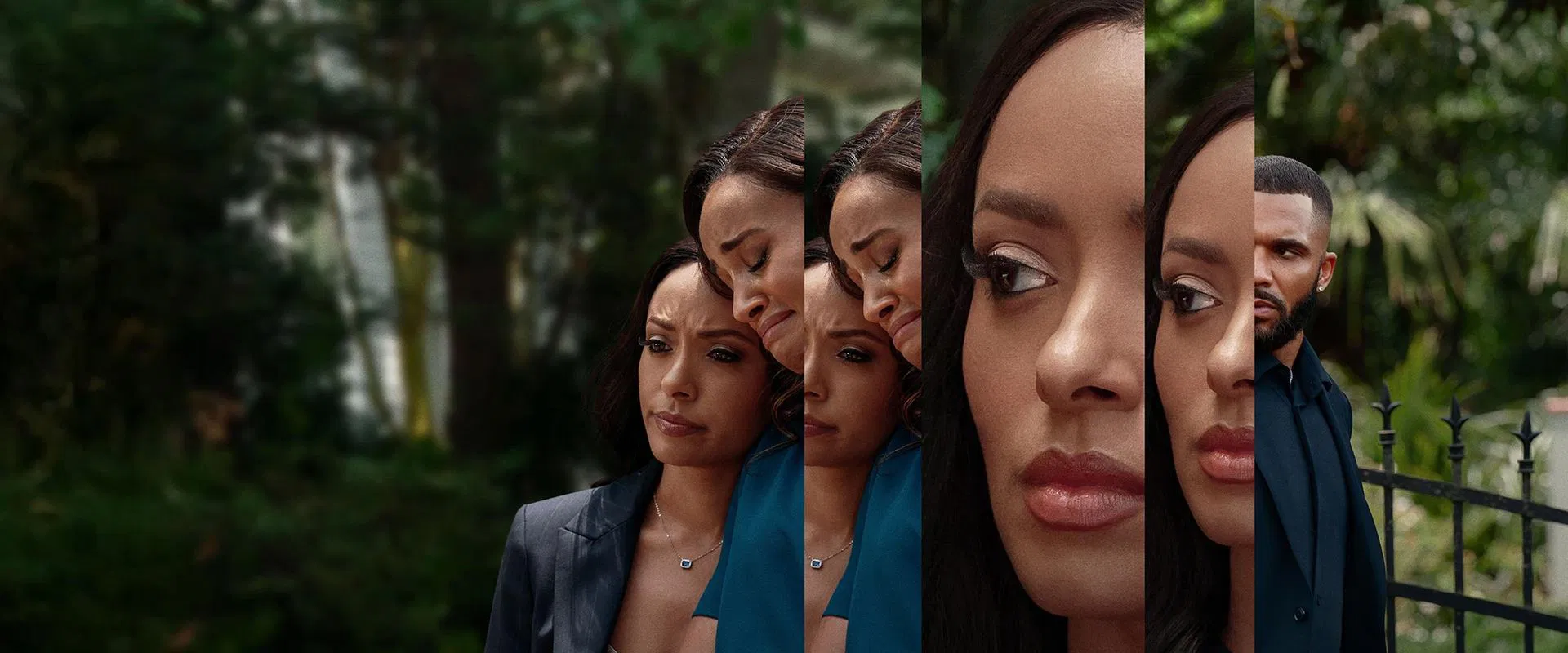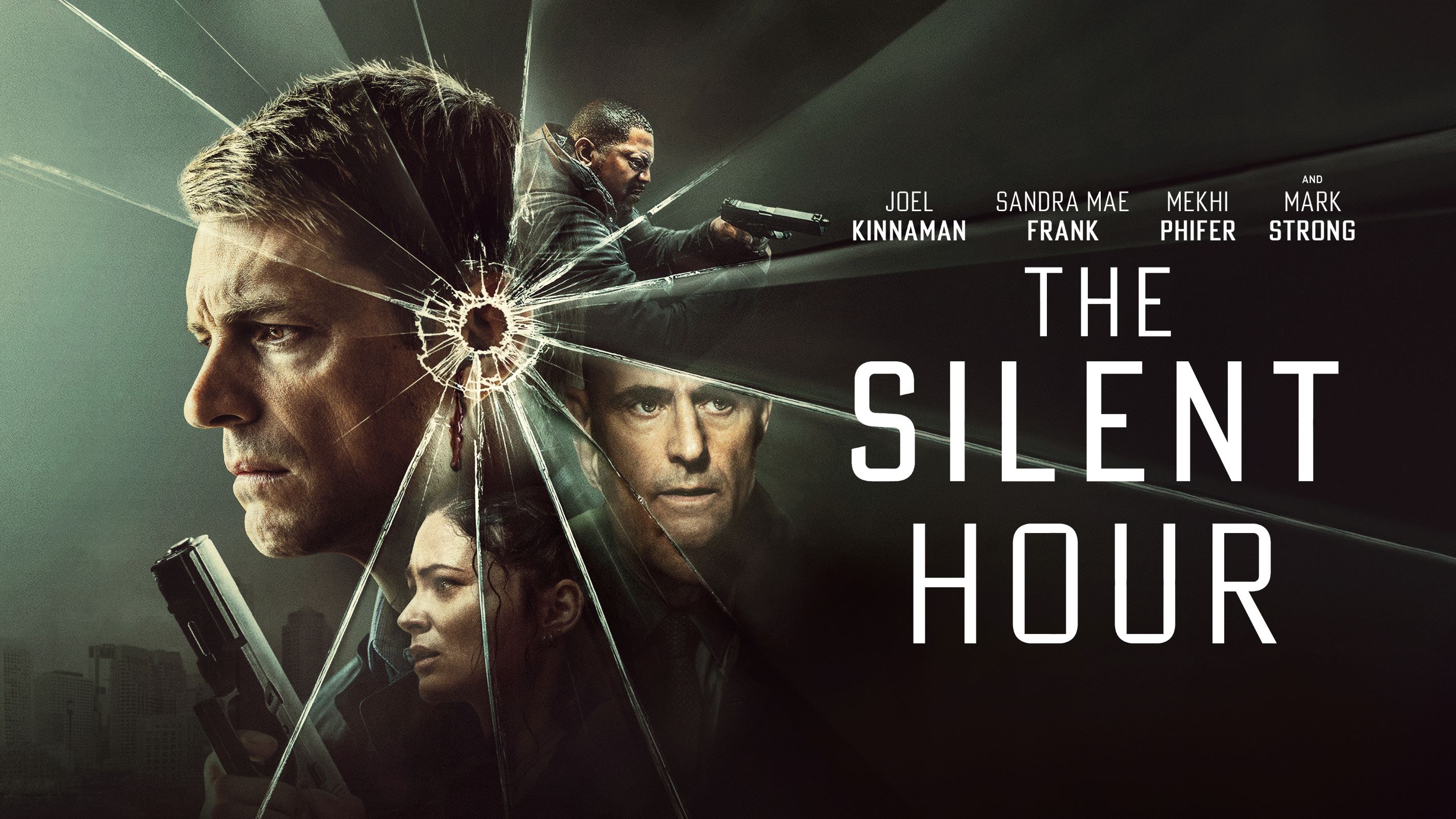Tyler Perry’s Duplicity—now streaming on Amazon Prime Video—wants to be urgent, topical, and bracing. It arrives with all the signals of “serious intent”: brooding about justice, the jagged aftermath of police violence, and a pair of ambitious Black women set against a system that doesn’t budge for grief or outrage. There is the shape here of a vital film, but what actually transpires is a parade of perfunctory gestures and canned dramatics; it’s as if Perry had borrowed the scaffolding of a social thriller and was content to let it creak.
The initial setup, at least, is promising. Marley Wells (Kat Graham), an up-and-coming attorney, shares the stage with her closest friend Fela Blackburn (Meagan Tandy), a local TV journalist brimming with devotion—nearly incandescent, but only for a short burst. Their dynamic should be the heart of the film, but what we’re handed is less a living friendship than a screenwriting convenience: two well-meaning ciphers pursuing “truth” and “justice,” the kind of probity that Perry, for all his bluster, has always sought but rarely discovered.
The inciting incident—Fela’s boyfriend gunned down during an innocuous jog, the atonement to be extracted from a city-slicker cop—ought to jolt you awake, but it’s handled with the same limp melodrama that Perry’s fans have learned to expect, and his detractors dread. Instead of cutting, the script clangs. We watch as Marley shoulders her friend’s pain, but Graham is hamstrung by an avalanche of expository monologues and atonal confrontations; at no point does she transcend the tinny scaffolding of “earnest Black heroine.” Meagan Tandy is left to play the professional mourner—stoic, selfless, a blank canvas for the film’s shriller impulses. As for the men (RonReaco Lee, Tyler Lepley), they circulate in supporting roles so thinly drawn they could be handled—and perhaps more vividly realized—by cardboard cutouts.
Perry’s biggest failing here isn’t just his refusal to trust his own premise, but his penchant for rhetorical flourishes over lived-in truth. The film is never subtle; every moment is underlined so thickly you half expect the dialogue to be written in Sharpie on the screen. The tissue-paper thinness of the plot is matched in its ending, which delivers pabulum rather than confrontation—a “twist” that can be seen approaching from so far off it’s less storm than cloud emoji.
Visually, Duplicity is a wasteland. The camera, apparently allergic to ugliness or personality, drifts from functional apartment to meeting room with a kind of unthinking neutrality. The score—ominous, mainlined in from the land of Direct-to-Streaming Dramas—tries to inject urgency but instead spotlights Perry’s inability to shape a story with real pulse or dread. Editing is slack, as though the film feared that cutting even a second might excise whatever tension remained.
The real tragedy of Duplicity is not in its subject but in its treatment. Perry traffics in the iconography of urgency but delivers all the passion of a safety seminar. The film’s surface concern with race and police violence is just that—a surface—polished until its reflects only the director’s self-importance. Perry confuses tiresome soapbox appeals for complexity, and the “mystery thriller” trappings are so battered by cliché that I wonder if even Perry believes in them anymore. By the finale—less a resolution than a melodramatic pile-up—the film has talked itself out of having anything left to say.
What’s left after all this striving is a hollow exercise: sketched characters, frustration masquerading as narrative urgency, and a director vainly mistaking noise for meaning. If anything, Duplicity is a cautionary tale—not about the issues it claims to address, but about the dangers of mistaking topicality for storytelling. Perry’s film is an emotional treadmill: movement, sweat, the illusion of progress, and the same tired vista the next time you look up. Some films fizzle; this one barely flickers.


